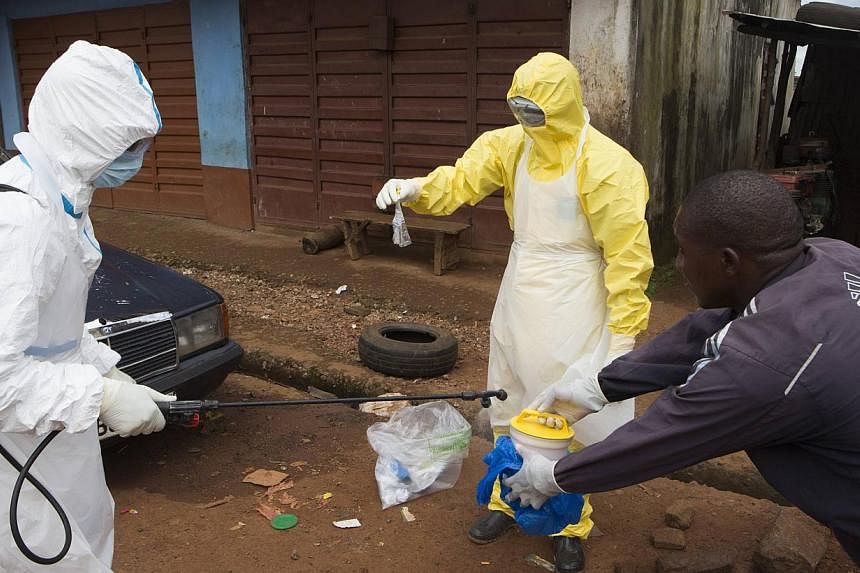MANILA (AFP) - The Philippines has rebuffed a United States request to dispatch medical workers to Ebola-hit regions, with the Health Ministry saying boosting the country's defences against any local outbreaks was the priority.
The United Nations has launched a global appeal for more help to fight the viral epidemic that has killed more than 4,000 people this year, mainly in Guinea, Liberia and Sierra Leone.
The United States and Britain had also specifically asked the Philippines to pitch in by deploying its health sector personnel, Health Secretary Enrique Ona said last week. At the time, Mr Ona said Manila was considering deploying substantial numbers of volunteer health workers to help out in epidemic-stricken West Africa, saying it was "something of a responsibility for our country" to respond to the call.
But on Friday, ministry spokesman Lyndon Lee Suy said Manila had for now ruled out sending medical personnel, and was instead considering providing cash and other forms of assistance."As of the moment, we're not really keen on sending human assistance, but we are not closing the possibility," he told a news conference.
"Enhancing capability first (is the priority) before we can send assistance," he added at a joint news conference with a regional official of the World Health Organization (WHO).
Several hundred Filipino health workers will be trained to handle any domestic Ebola emergency, Mr Lee Suy said.
Experts from the WHO, the International Committee of the Red Cross, Medecins Sans Frontieres and the US Johns Hopkins University will train them on the proper use of protective clothing, handling of patients, contact-tracing and infection control.
"We know the risk and we are addressing the risk," Mr Lee Suy said.
Twenty government hospitals will meanwhile be retrofitted to handle Ebola-stricken patients, with three to be designated specifically as treatment centres, Mr Lee Suy said.
The government has also asked private hospitals to consider handling Ebola patients, he said.
"This is not the first time we are addressing a threat like Ebola. We had Sars and H1N1 (bird flu)," he said.
WHO country representative Julie Hall, speaking beside Mr Lee Suy, said Manila had a "very strong foundation" to handle a domestic Ebola threat following its experience containing the Severe Acute Respiratory Syndrome.
The country also has a network of "first responders" in place in case of epidemics, said Ms Hall.

